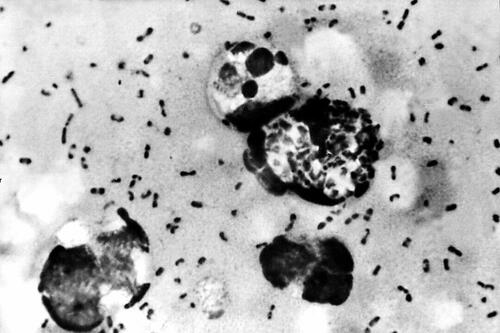Government
FDA center directors on lessons from the EUA pathway: Flexibility serves us well
The flexibility of emergency use authorizations, and allowing the FDA to accept more uncertainty during the pandemic so far, has ultimately aided its response to Covid-19, center directors said Tuesday at a workshop at the National Academies of Sciences,.

The flexibility of emergency use authorizations, and allowing the FDA to accept more uncertainty during the pandemic so far, has ultimately aided its response to Covid-19, center directors said Tuesday at a workshop at the National Academies of Sciences, Engineering and Medicine.
Patrizia Cavazzoni, director of the FDA’s Center for Drug Evaluation and Research, pointed to the agility of the EUAs, and the ability to quickly revoke any EUAs, as well as the transparency around those decisions as to what led to the evolution of the types of therapeutics that have been authorized (see chart below).
“Agility is very important, and the EUA allows us that,” she said, stressing the ability to revoke EUAs very quickly and saying FDA wishes it had that ability, when the data warranted, outside of the pandemic.
“The big takeaway for me, based on the past several months, is the importance of collaboration across the US government agencies and with international counterparts and the research community,” Cavazzoni said. “The other important takeaway is having a regulatory framework that allows us to be agile and flexible.”

It’s important for the public to understand the evidence and data generation continues even after an EUA, Cavazzoni said, offering the example of hydroxychloroquine, which had its EUA revoked:
What has been lost in this discussion is that authorization was incredibly narrow and the fact sheet specifically said it should be limited to patients who could not be in clinical trials. Almost immediately after these trials read out, the EUA was revoked. Despite that, there was so much noise around this and it’s part of our lessons learned on communicating facts.
With the authorized monoclonal antibodies for Covid-19, Cavazzoni noted that it was clear these could save lives but “what we saw was very slow uptake last fall and into the spring until this summer where finally the message went through and now we have limited supplies. We need to work together more effectively to break through the noise.”
 Josh Sharfstein
Josh SharfsteinJosh Sharfstein, a Johns Hopkins professor who was once considered for the top FDA commissioner position, also questioned the center directors earlier on Tuesday on how industry often leads the conversation around the data on new Covid-related therapeutics and vaccines.
Cavazzoni said her center is “constrained by laws and regulations on what we communicate” and from its perspective, “we would welcome broader authorities when it comes to communication about the programs, not only on issuance of EUAs and education, as well as EUAs that end up being declined. I think this is an area prime for further thinking.”
Peter Marks, director of the FDA’s Center for Biologics Evaluation and Research, added that he’s hesitant to call for any major changes to the EUA pathway. “It’s not that usual that I think of a particular statutory authority as incredibly well crafted but our emergency use authorization is crafted quite well to deal with a range of things that can come our way and it’s up to us to ensure it’s used properly, not to mess around with the statute.”
“If we’re thinking about anything in this area, it’s minor redecoration, not renovation,” he said. Earlier in the panel discussion Marks mentioned the idea of potentially combining the efforts of the FDA’s vaccine adcomm VRBPAC and the CDC’s separate adcomm ACIP. “The process ultimately works in that science corrected some of the errors that were made. Yes, it might have been nice if they weren’t made in real time but I think the transparency helps.”
“The thing I wonder in the vaccine realm if we could have better coordinated things to essentially collapse the VRBPAC process with the Advisory Committee on Immunization Practices process,” he said. “We need to look carefully at this, ACIP was developed for routine vaccines and for that matter, for countermeasures not for the middle of an emergency.”
And in a country where there’s always been vaccine hesitancy, “that’s not the best time to have any air space between two advisory committees,” Marks said. “I think we as a federal government need to do a really good job to make sure our messaging is harmonized.”
 Jeff Shuren
Jeff ShurenThe comments come as the FDA’s and CDC’s adcomms and leaders recently clashed over what groups of people should first receive booster shots following the recent EUA. Two of the top vaccine experts working under Marks recently announced their retirements were due at least in part to concerns with the way the booster EUA process played out.
On the medical device side, CDRH head Jeff Shuren noted that the EUA authorities have been incredibly helpful given the volume of products coming in through the door. “Without a national testing strategy, we’re doing all comers, rather than having a targeted approach,” he said. He also noted the EUA pathway was invaluable in speeding new tests and diagnostics, adding, “I really wish we had that flexibility in peace time.”
cdc emergency use authorization us government pandemic covid-19 vaccine testing fda clinical trials antibodies hydroxychloroquine monoclonal antibodiesInternational
Health Officials: Man Dies From Bubonic Plague In New Mexico
Health Officials: Man Dies From Bubonic Plague In New Mexico
Authored by Jack Phillips via The Epoch Times (emphasis ours),
Officials in…

Authored by Jack Phillips via The Epoch Times (emphasis ours),
Officials in New Mexico confirmed that a resident died from the plague in the United States’ first fatal case in several years.
The New Mexico Department of Health, in a statement, said that a man in Lincoln County “succumbed to the plague.” The man, who was not identified, was hospitalized before his death, officials said.
They further noted that it is the first human case of plague in New Mexico since 2021 and also the first death since 2020, according to the statement. No other details were provided, including how the disease spread to the man.
The agency is now doing outreach in Lincoln County, while “an environmental assessment will also be conducted in the community to look for ongoing risk,” the statement continued.
“This tragic incident serves as a clear reminder of the threat posed by this ancient disease and emphasizes the need for heightened community awareness and proactive measures to prevent its spread,” the agency said.
A bacterial disease that spreads via rodents, it is generally spread to people through the bites of infected fleas. The plague, known as the black death or the bubonic plague, can spread by contact with infected animals such as rodents, pets, or wildlife.
The New Mexico Health Department statement said that pets such as dogs and cats that roam and hunt can bring infected fleas back into homes and put residents at risk.
Officials warned people in the area to “avoid sick or dead rodents and rabbits, and their nests and burrows” and to “prevent pets from roaming and hunting.”
“Talk to your veterinarian about using an appropriate flea control product on your pets as not all products are safe for cats, dogs or your children” and “have sick pets examined promptly by a veterinarian,” it added.
“See your doctor about any unexplained illness involving a sudden and severe fever, the statement continued, adding that locals should clean areas around their home that could house rodents like wood piles, junk piles, old vehicles, and brush piles.
The plague, which is spread by the bacteria Yersinia pestis, famously caused the deaths of an estimated hundreds of millions of Europeans in the 14th and 15th centuries following the Mongol invasions. In that pandemic, the bacteria spread via fleas on black rats, which historians say was not known by the people at the time.
Other outbreaks of the plague, such as the Plague of Justinian in the 6th century, are also believed to have killed about one-fifth of the population of the Byzantine Empire, according to historical records and accounts. In 2013, researchers said the Justinian plague was also caused by the Yersinia pestis bacteria.
But in the United States, it is considered a rare disease and usually occurs only in several countries worldwide. Generally, according to the Mayo Clinic, the bacteria affects only a few people in U.S. rural areas in Western states.
Recent cases have occurred mainly in Africa, Asia, and Latin America. Countries with frequent plague cases include Madagascar, the Democratic Republic of Congo, and Peru, the clinic says. There were multiple cases of plague reported in Inner Mongolia, China, in recent years, too.
Symptoms
Symptoms of a bubonic plague infection include headache, chills, fever, and weakness. Health officials say it can usually cause a painful swelling of lymph nodes in the groin, armpit, or neck areas. The swelling usually occurs within about two to eight days.
The disease can generally be treated with antibiotics, but it is usually deadly when not treated, the Mayo Clinic website says.
“Plague is considered a potential bioweapon. The U.S. government has plans and treatments in place if the disease is used as a weapon,” the website also says.
According to data from the U.S. Centers for Disease Control and Prevention, the last time that plague deaths were reported in the United States was in 2020 when two people died.
International
Riley Gaines Explains How Women’s Sports Are Rigged To Promote The Trans Agenda
Riley Gaines Explains How Women’s Sports Are Rigged To Promote The Trans Agenda
Is there a light forming when it comes to the long, dark and…

Is there a light forming when it comes to the long, dark and bewildering tunnel of social justice cultism? Global events have been so frenetic that many people might not remember, but only a couple years ago Big Tech companies and numerous governments were openly aligned in favor of mass censorship. Not just to prevent the public from investigating the facts surrounding the pandemic farce, but to silence anyone questioning the validity of woke concepts like trans ideology.
From 2020-2022 was the closest the west has come in a long time to a complete erasure of freedom of speech. Even today there are still countries and Europe and places like Canada or Australia that are charging forward with draconian speech laws. The phrase "radical speech" is starting to circulate within pro-censorship circles in reference to any platform where people are allowed to talk critically. What is radical speech? Basically, it's any discussion that runs contrary to the beliefs of the political left.
Open hatred of moderate or conservative ideals is perfectly acceptable, but don't ever shine a negative light on woke activism, or you might be a terrorist.
Riley Gaines has experienced this double standard first hand. She was even assaulted and taken hostage at an event in 2023 at San Francisco State University when leftists protester tried to trap her in a room and demanded she "pay them to let her go." Campus police allegedly witnessed the incident but charges were never filed and surveillance footage from the college was never released.
It's probably the last thing a champion female swimmer ever expects, but her head-on collision with the trans movement and the institutional conspiracy to push it on the public forced her to become a counter-culture voice of reason rather than just an athlete.
For years the independent media argued that no matter how much we expose the insanity of men posing as women to compete and dominate women's sports, nothing will really change until the real female athletes speak up and fight back. Riley Gaines and those like her represent that necessary rebellion and a desperately needed return to common sense and reason.
In a recent interview on the Joe Rogan Podcast, Gaines related some interesting information on the inner workings of the NCAA and the subversive schemes surrounding trans athletes. Not only were women participants essentially strong-armed by colleges and officials into quietly going along with the program, there was also a concerted propaganda effort. Competition ceremonies were rigged as vehicles for promoting trans athletes over everyone else.
The bottom line? The competitions didn't matter. The real women and their achievements didn't matter. The only thing that mattered to officials were the photo ops; dudes pretending to be chicks posing with awards for the gushing corporate media. The agenda took precedence.
Lia Thomas, formerly known as William Thomas, was more than an activist invading female sports, he was also apparently a science project fostered and protected by the athletic establishment. It's important to understand that the political left does not care about female athletes. They do not care about women's sports. They don't care about the integrity of the environments they co-opt. Their only goal is to identify viable platforms with social impact and take control of them. Women's sports are seen as a vehicle for public indoctrination, nothing more.
The reasons why they covet women's sports are varied, but a primary motive is the desire to assert the fallacy that men and women are "the same" psychologically as well as physically. They want the deconstruction of biological sex and identity as nothing more than "social constructs" subject to personal preference. If they can destroy what it means to be a man or a woman, they can destroy the very foundations of relationships, families and even procreation.
For now it seems as though the trans agenda is hitting a wall with much of the public aware of it and less afraid to criticize it. Social media companies might be able to silence some people, but they can't silence everyone. However, there is still a significant threat as the movement continues to target children through the public education system and women's sports are not out of the woods yet.
The ultimate solution is for women athletes around the world to organize and widely refuse to participate in any competitions in which biological men are allowed. The only way to save women's sports is for women to be willing to end them, at least until institutions that put doctrine ahead of logic are made irrelevant.
Government
Mike Pompeo Doesn’t Rule Out Serving In 2nd Trump Administration
Mike Pompeo Doesn’t Rule Out Serving In 2nd Trump Administration
Authored by Jack Phillips via The Epoch Times (emphasis ours),
Former Secretary…

Authored by Jack Phillips via The Epoch Times (emphasis ours),
Former Secretary of State Mike Pompeo said in a new interview that he’s not ruling out accepting a White House position if former President Donald Trump is reelected in November.
“If I get a chance to serve and think that I can make a difference ... I’m almost certainly going to say yes to that opportunity to try and deliver on behalf of the American people,” he told Fox News, when asked during a interview if he would work for President Trump again.
“I’m confident President Trump will be looking for people who will faithfully execute what it is he asked them to do,” Mr. Pompeo said during the interview, which aired on March 8. “I think as a president, you should always want that from everyone.”
He said that as a former secretary of state, “I certainly wanted my team to do what I was asking them to do and was enormously frustrated when I found that I couldn’t get them to do that.”
Mr. Pompeo, a former U.S. representative from Kansas, served as Central Intelligence Agency (CIA) director in the Trump administration from 2017 to 2018 before he was secretary of state from 2018 to 2021. After he left office, there was speculation that he could mount a Republican presidential bid in 2024, but announced that he wouldn’t be running.
President Trump hasn’t publicly commented about Mr. Pompeo’s remarks.
In 2023, amid speculation that he would make a run for the White House, Mr. Pompeo took a swipe at his former boss, telling Fox News at the time that “the Trump administration spent $6 trillion more than it took in, adding to the deficit.”
“That’s never the right direction for the country,” he said.
In a public appearance last year, Mr. Pompeo also appeared to take a shot at the 45th president by criticizing “celebrity leaders” when urging GOP voters to choose ahead of the 2024 election.
2024 Race
Mr. Pompeo’s interview comes as the former president was named the “presumptive nominee” by the Republican National Committee (RNC) last week after his last major Republican challenger, former South Carolina Gov. Nikki Haley, dropped out of the 2024 race after failing to secure enough delegates. President Trump won 14 out of 15 states on Super Tuesday, with only Vermont—which notably has an open primary—going for Ms. Haley, who served as President Trump’s U.S. ambassador to the United Nations.
On March 8, the RNC held a meeting in Houston during which committee members voted in favor of President Trump’s nomination.
“Congratulations to President Donald J. Trump on his huge primary victory!” the organization said in a statement last week. “I’d also like to congratulate Nikki Haley for running a hard-fought campaign and becoming the first woman to win a Republican presidential contest.”
Earlier this year, the former president criticized the idea of being named the presumptive nominee after reports suggested that the RNC would do so before the Super Tuesday contests and while Ms. Haley was still in the race.
Also on March 8, the RNC voted to name Trump-endorsed officials to head the organization. Michael Whatley, a North Carolina Republican, was elected the party’s new national chairman in a vote in Houston, and Lara Trump, the former president’s daughter-in-law, was voted in as co-chair.
“The RNC is going to be the vanguard of a movement that will work tirelessly every single day to elect our nominee, Donald J. Trump, as the 47th President of the United States,” Mr. Whatley told RNC members in a speech after being elected, replacing former chair Ronna McDaniel. Ms. Trump is expected to focus largely on fundraising and media appearances.
President Trump hasn’t signaled whom he would appoint to various federal agencies if he’s reelected in November. He also hasn’t said who his pick for a running mate would be, but has offered several suggestions in recent interviews.
In various interviews, the former president has mentioned Sen. Tim Scott (R-S.C.), Texas Gov. Greg Abbott, Rep. Elise Stefanik (R-N.Y.), Vivek Ramaswamy, Florida Gov. Ron DeSantis, and South Dakota Gov. Kristi Noem, among others.
-

 Uncategorized3 weeks ago
Uncategorized3 weeks agoAll Of The Elements Are In Place For An Economic Crisis Of Staggering Proportions
-

 International6 days ago
International6 days agoEyePoint poaches medical chief from Apellis; Sandoz CFO, longtime BioNTech exec to retire
-

 Uncategorized4 weeks ago
Uncategorized4 weeks agoCalifornia Counties Could Be Forced To Pay $300 Million To Cover COVID-Era Program
-

 Uncategorized3 weeks ago
Uncategorized3 weeks agoApparel Retailer Express Moving Toward Bankruptcy
-

 Uncategorized4 weeks ago
Uncategorized4 weeks agoIndustrial Production Decreased 0.1% in January
-

 International6 days ago
International6 days agoWalmart launches clever answer to Target’s new membership program
-

 Uncategorized4 weeks ago
Uncategorized4 weeks agoRFK Jr: The Wuhan Cover-Up & The Rise Of The Biowarfare-Industrial Complex
-

 Uncategorized3 weeks ago
Uncategorized3 weeks agoGOP Efforts To Shore Up Election Security In Swing States Face Challenges





















